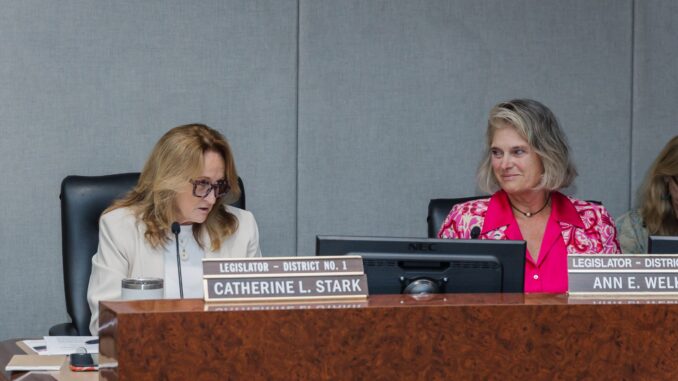
The Suffolk County Legislature unanimously approved the creation of a Working Waterfront Program during its general meeting on September 3 in Hauppauge.
This resolution (IR1520) establishes Chapter 26 of the Suffolk County Code to establish a framework to acquire conservation easements on working waterfront properties and help forever preserve Suffolk’s commercial fishing and waterfront heritage.
“I have long championed the preservation of farmland and open space in Suffolk County,” said Legislator Catherine Stark (R-Riverhead), who co-sponsored the resolution. “Now, Chapter 26 will give the county an invaluable tool to preserve and protect our important aquaculture and marine industries. With over 800 properties identified by a recent county study, this measure will benefit everyone from Greenport and Fishers Island all the way to Babylon and Huntington.”
She praised her colleagues who unanimously supported the measure.
“For more than a year, I have worked with representatives from various environmental and aquaculture entities, as well as members of the Executive’s office, to clarify the critical details — the ‘fine print,’ if you will — to ensure this program’s effectiveness and to encompass the many organizations and individuals in the aquaculture industry,” said Stark. “Long Island has had a long and proud marine history, and the overwhelming support for this effort demonstrates that my legislative colleagues and the county executive are committed to protecting and preserving our working waterfronts for future generations.”
As one example of the strong support received from stakeholders in the maritime business, the Long Island Commercial Fishing Association (LICFA) said the resolution “represents a long-overdue commitment to safeguarding the essential infrastructure that sustains Suffolk County’s historic and economically vital commercial fishing industry.”
In a letter of support prior to its passage, LICFA Executive Director Bonnie Brady wrote: “The passage of this resolution would signal Suffolk County’s understanding that commercial fishing is not an expendable relic of the past but a living, productive, and necessary part of Long Island’s present and future trajectory. It’s not just about boats and nets, it’s about food security, local jobs, commercial fishing heritage, and economic diversity.”
When signed as promised by County Executive Ed Romaine, the law will establish a Working Waterfront Committee, which will consist of representatives from each township, the county executive, the county legislature, and the maritime sector. The chosen committee members must have some connection to aquaculture, fishing, marine industry, or a related field to sit on the panel.
This committee will oversee program administration, review applications from the waterfront property owners, conduct site visits, and advise on easement acquisitions and permitting. The county’s Department of Economic Development and Planning will assist the committee before recommendations are given to the legislature for approval.
The working waterfronts program will follow a process to identify and approve properties similar to the rigorous process already used by Suffolk’s Farmland Committee in its vigorous farmland preservation activities.

